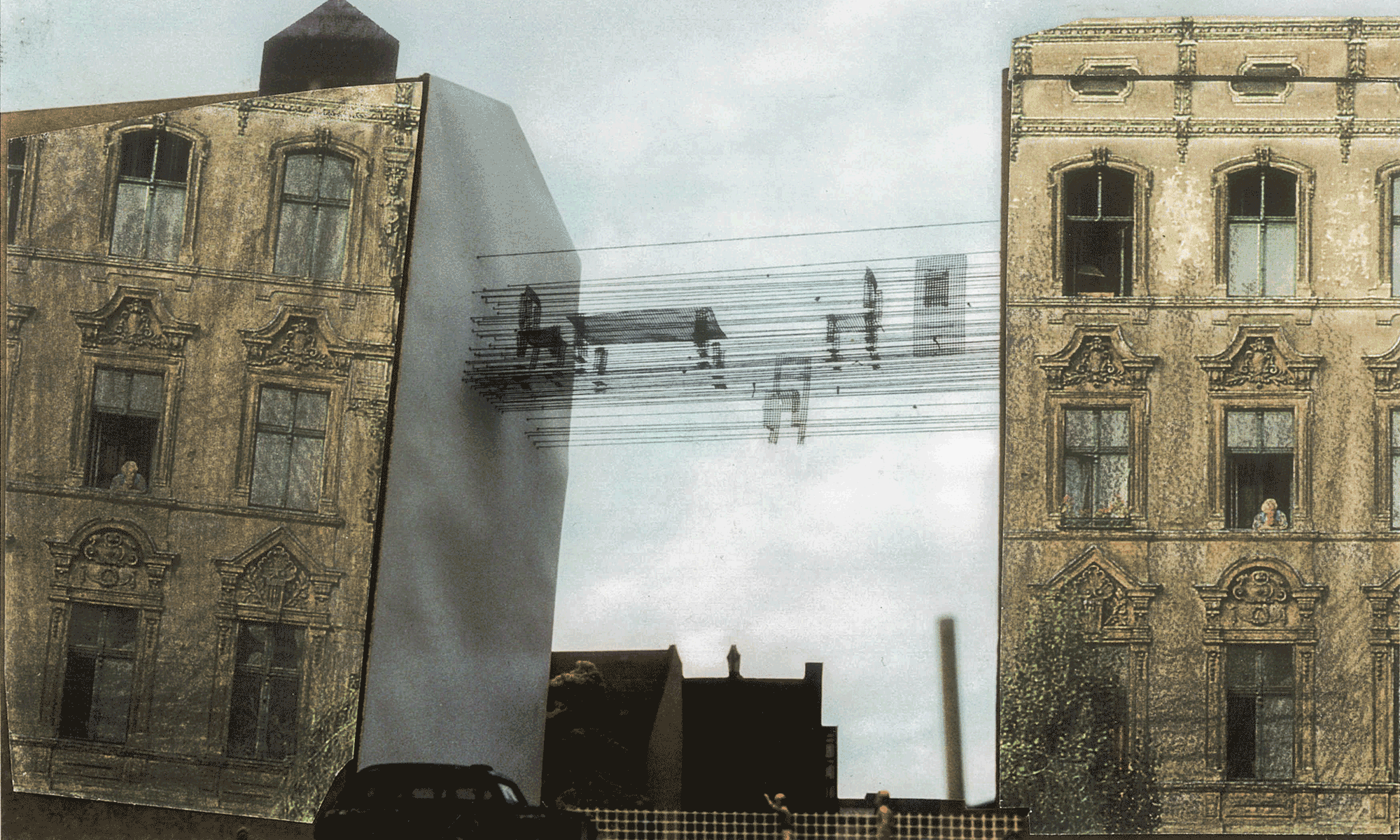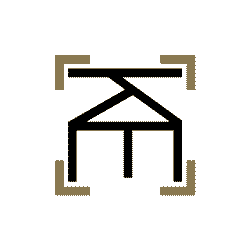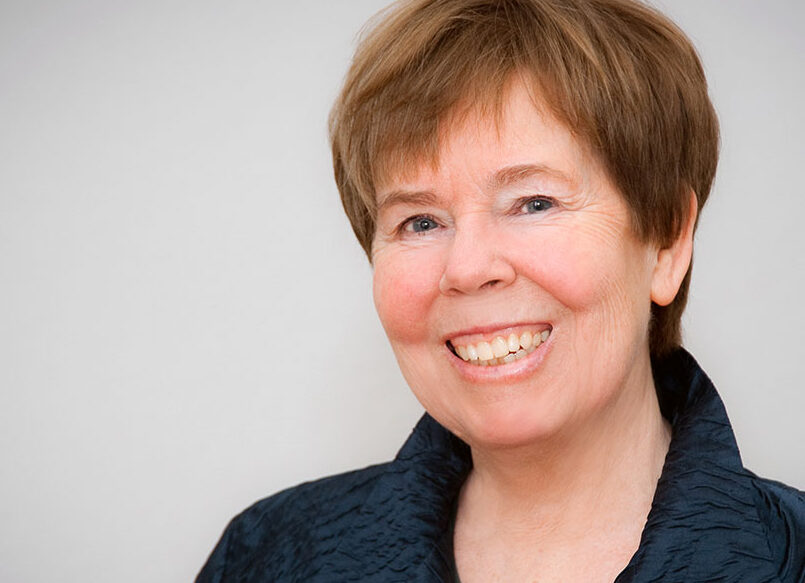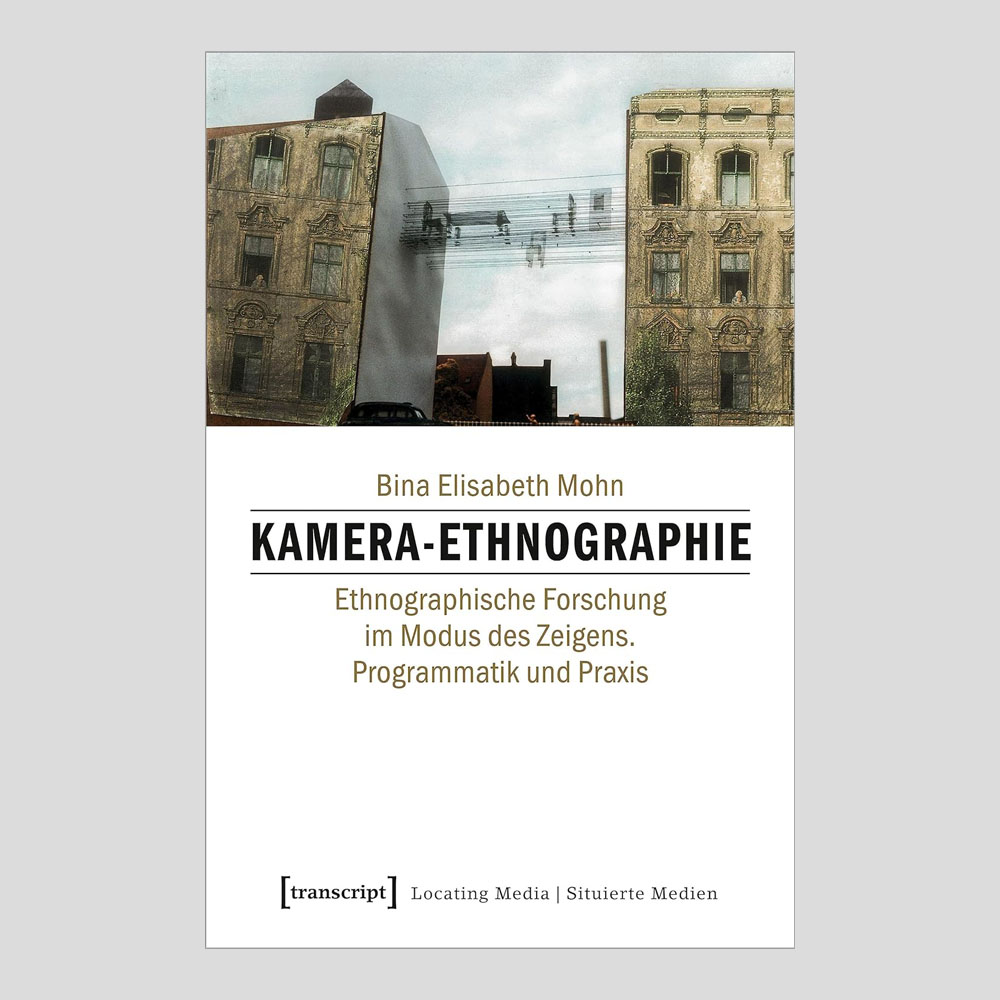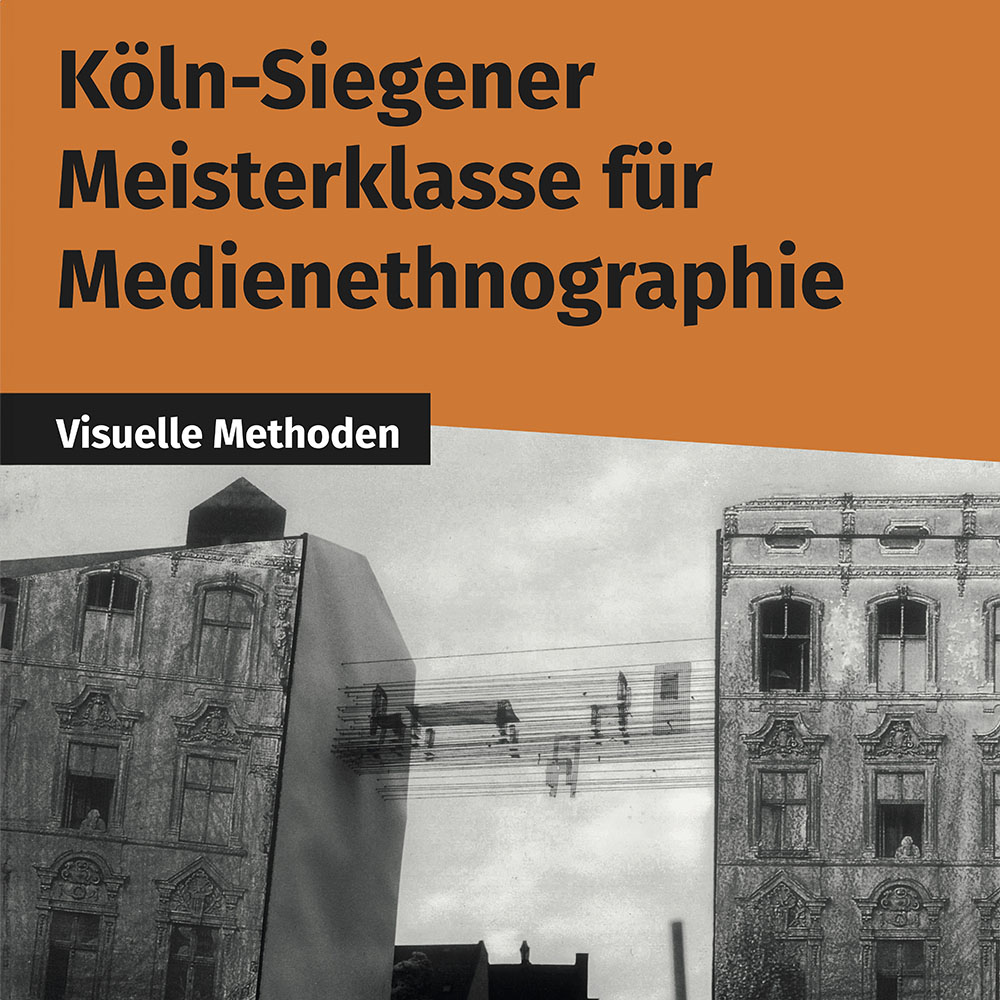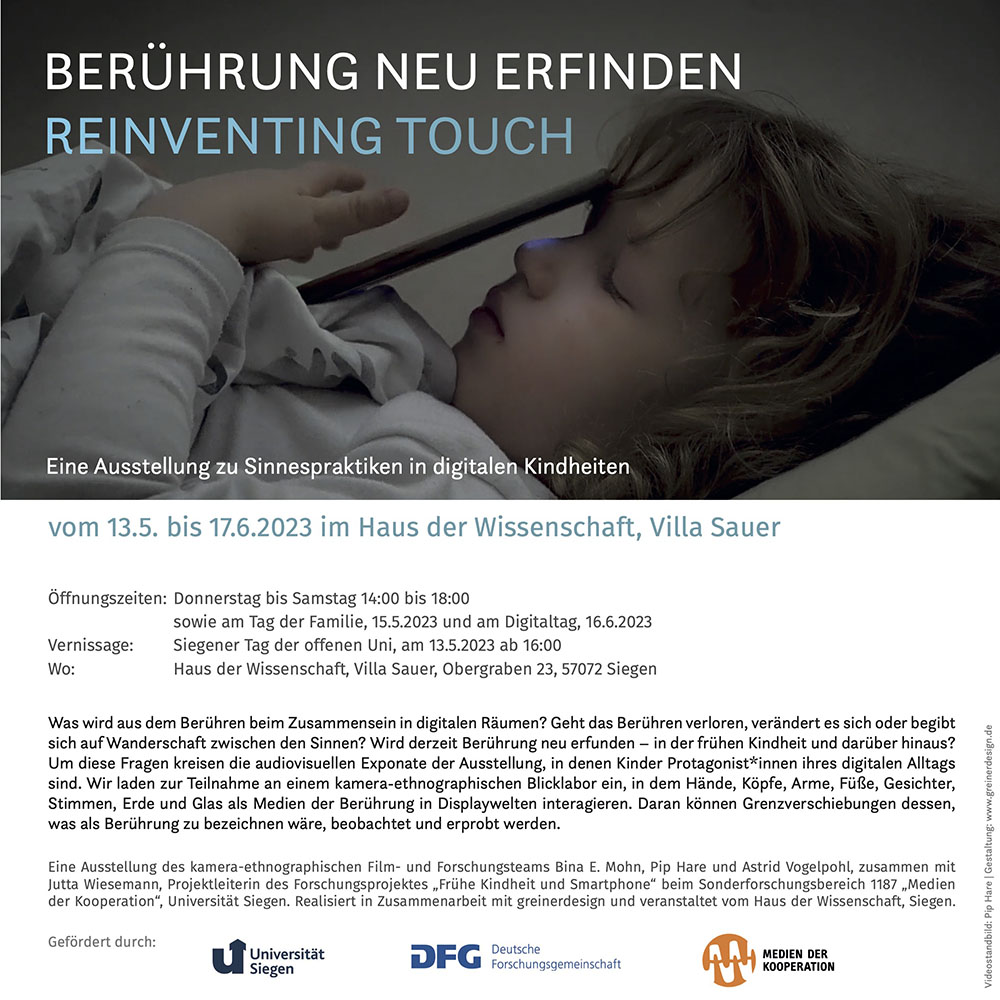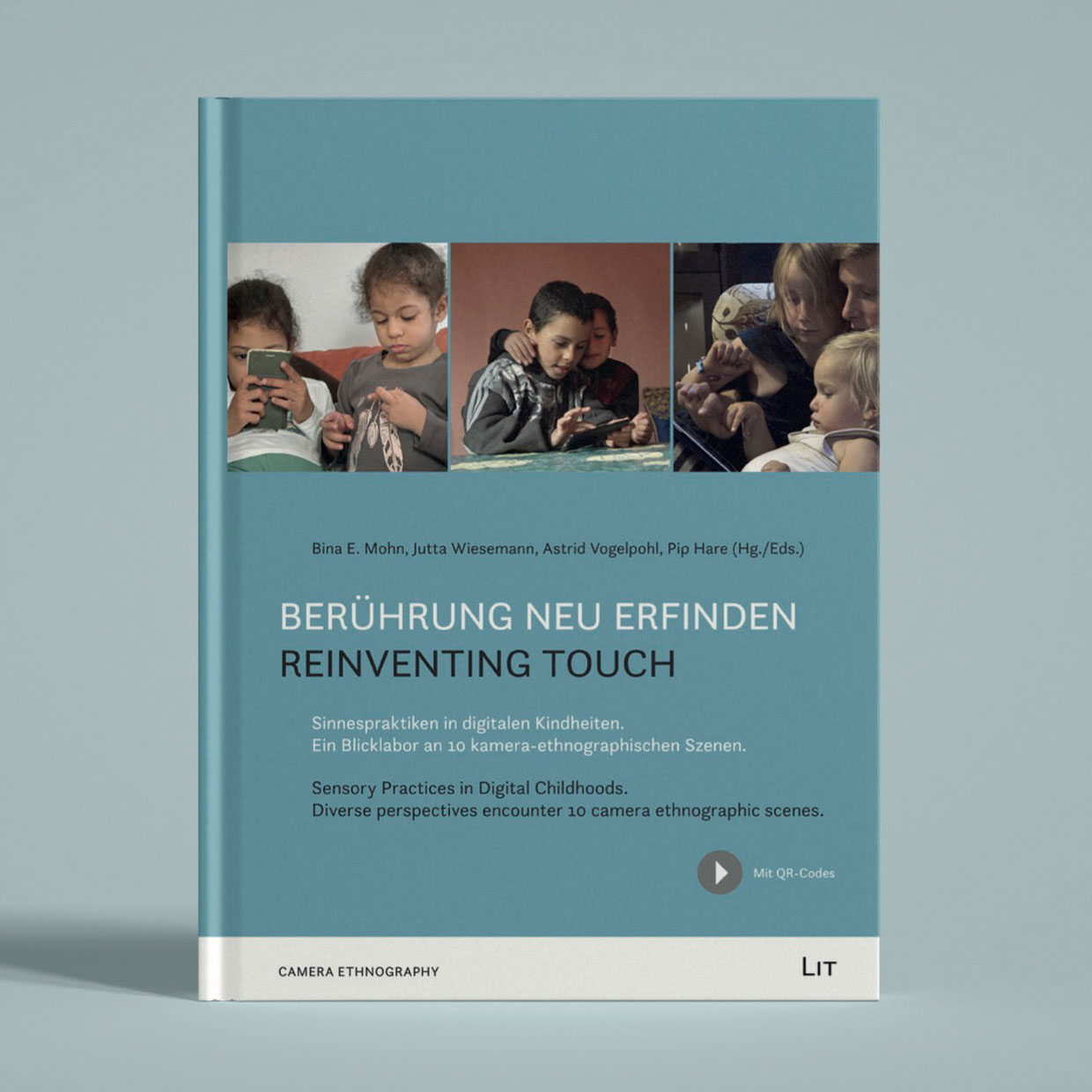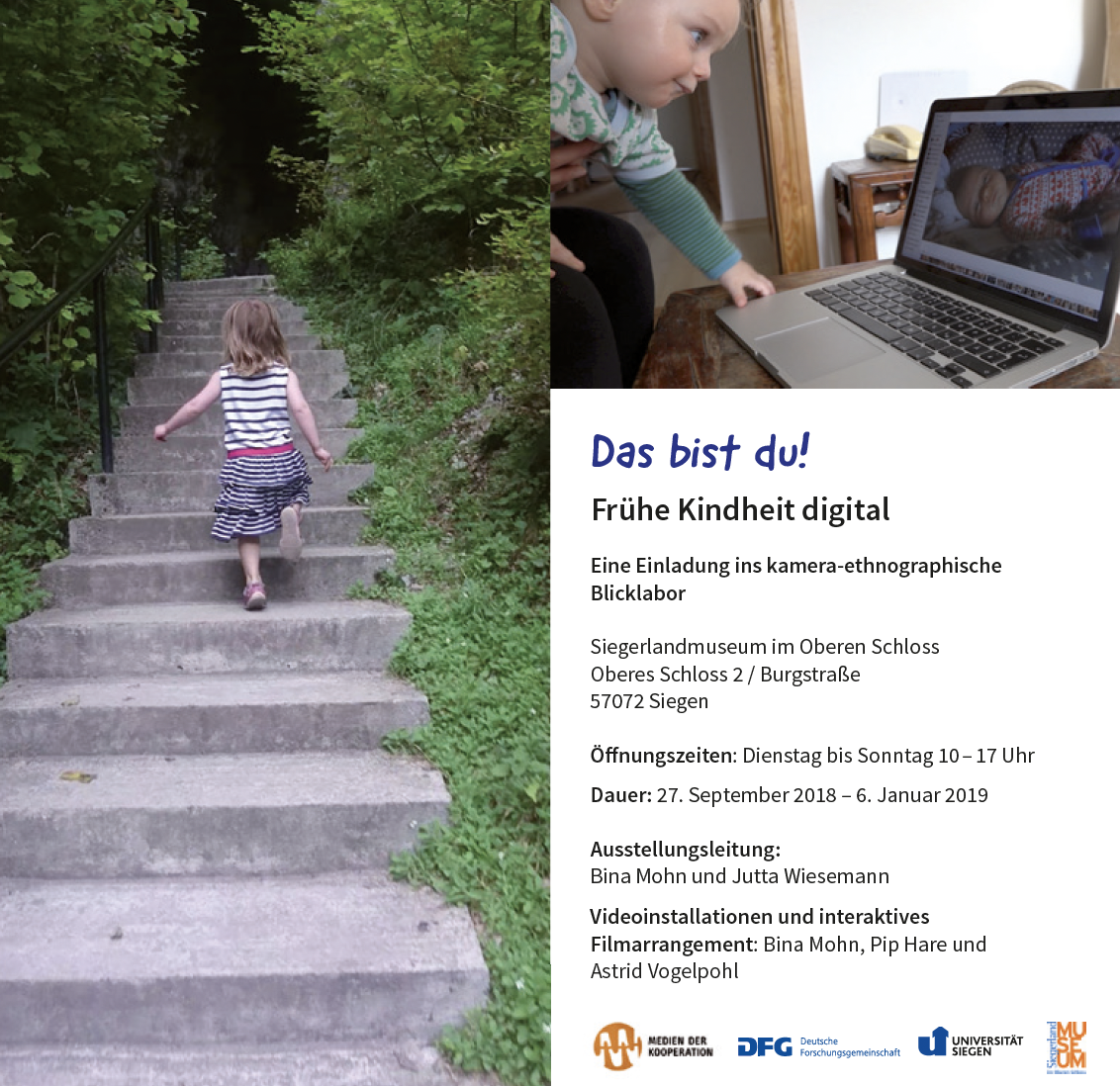Camera Ethnography
Over the past 20 years, camera ethnography has evolved into an independent strand of media ethnography, that shows rather than tells. Camera ethnography shifts the emphasis of research from the discursive to the performative and introduces a mode of perceiving and knowing that unfolds as much between as within images, sounds, words, and audiences’ gazes. At the same time, it offers a manageable representation-critical methodology and is conceptualized as a continuous reflexive process of working on visibility and seeing.
Filming as an epistemic practice
In our everyday use of media, we simply believe that we can capture something with a camera and share it with each other. However, if we assume that the goal of research is to get beyond the state of what is known and seen so far, then we are dealing with epistemic things that are not yet visible at first and therefore cannot just be recorded with a camera. This conclusion refers to the laboratory studies of the sociology of scientific knowledge in the 1980s and 1990s and means a marked departure from strategies of camera work that assume visibility exists a priori. The premise of non-visibility has been a fundamental guiding principle in the development of camera ethnography as a methodological approach that aims to bring forth rather than to represent.
Spaces of possibility
Camera ethnography aims at a dense showing (cf. Geertz’ dense description) of everyday worlds and lends itself particularly well to the study of nonverbal practices and their bodily and material aspects. Furthermore, camera ethnography is particularly suitable for an adoption of the format “übersichtliche Darstellung” (Wittgenstein) – in this context, filmic arrangements together with interventions (like good and thought-provoking questions) serve as an attempt to answer the question of how social practices can be lived, named, and understood here and now, and there and then. This offers audiences of camera-ethnographic research an opportunity to discover unexpected things about the diversity and possibility of social phenomena and practices.
Reception as research
Camera ethnographic productions are presented publicly, inviting audiences to contribute their own perspectives andways of looking and seeing. Embracing this, the events of reception might be conceptualized as public “laboratories of gazes” (Blicklabore). Reception means a co-creation of research: gazes interfere with and bring forth what is seen. But whose gazes are we talking about? What perspectives are at play when the camera ethnographers’ filmic results are observed further by diverse viewers? Wittgenstein’s enduring question “How else could it be?” can be supplemented by the question: “What views and perspectives are still imaginable?” Thus, individual reception can be transformed into collective reflection, shared knowledge and public debate.
Important references for the camera ethnography approach include Bruno Latour (on science-in-the-making), Karin Knorr-Cetina (on epistemic cultures), Hans-Jörg Rheinberger (on experimental systems), Clifford Geertz (on thick description), Ludwig Wittgenstein (on language games and “übersichtliche Darstellung”), and Karen Barad (on agential realism and intra-action).
At the interfaces of field and research as well as at the interfaces of research results and their reception, differently situated practices interact productively. Ethnography can be understood as a heterogeneous cooperation; in situated processes of knowledge production, visibility, and ways of seeing can be shared and remain in flow.
